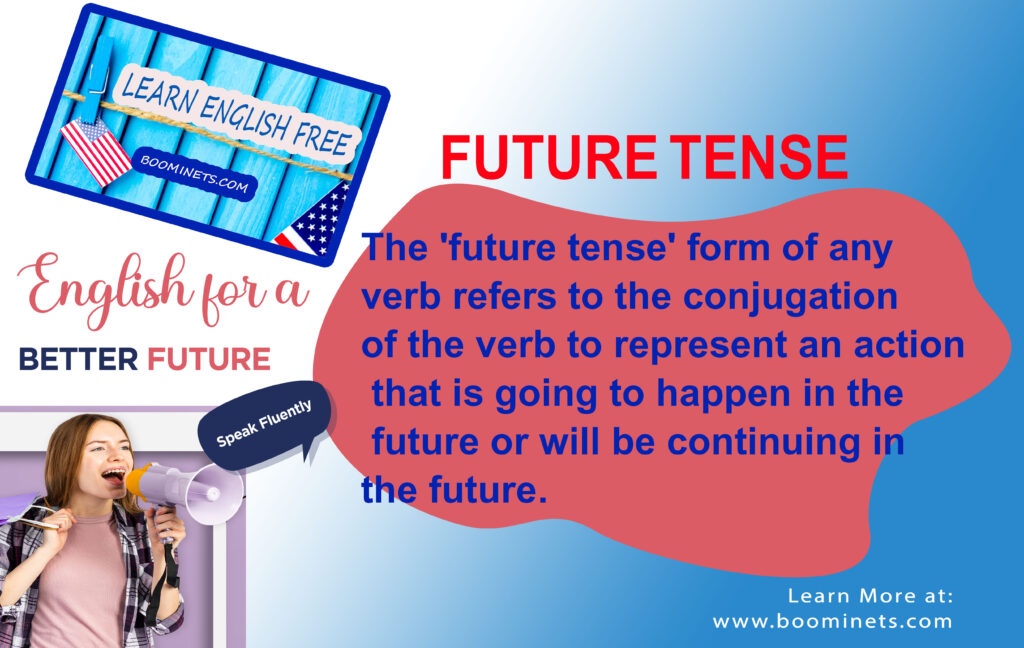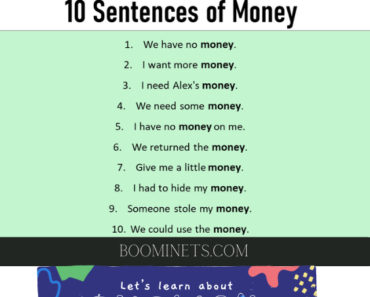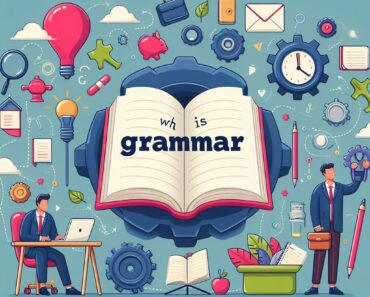
Examples of the Future Tense
Here are a few examples that would help you understand the future tense.
- Katherine will write a song for the sectionals.
- Navya will be coming home for the holidays.
- Lara will have left work by now.
- Will he be studying for tomorrow’s exam?
- They will not have performed at the concert.
- Will you think over, and let me know?
Structure of the Future Tense
Look at the following table in order to understand the structure of the future tense.Structure of Future TenseSimple Future Tense
Future Continuous Tense
Future Perfect Tense
Future Perfect Continuous Tense
Subject + Auxiliary verb(will) + Base form of the main verb + the rest of the sentence
Subject + Helping Verb(will) + Be + Main verb+ing + the rest of the sentence
Subject + Helping Verb (will) + Have + Past participle form of the main verb + the rest of the sentence along with the time frame
Subject + Helping verb(will) + Have + been + Main verb+ing + the rest of the sentence
For example: Karthik will meet me at the gym.
For example: Karthik will be meeting me at the gym.
For example: Karthik will have met me at the gym.
For example: Karthik will have been meeting me at the gym.
Analysing how the future tense changes its structure when used in the positive, negative, interrogative and negative interrogative sentences.
| Positive | Negative | Interrogative | Negative Interrogative |
| Subject + Will + Base form of the verb | Subject + Will not/Won’t + Base form of the verb | Will + Subject + Base form of the verb | Won’t + Subject + Base form of the verb |
| For example: Sindhu will walk to school tomorrow. | For example: Sindhu will not/won’t walk to school tomorrow. | For example: Will Sindu walk to school tomorrow? | For example: Won’t Sindhu walk to school tomorrow? |
Forthcoming Indicative: Significance, Explanation, Configuration, and Varieties with Illustrations

As sentient beings, we perpetually anticipate an imminent excursion with our companions, a familial gathering, or an unexpected celebration orchestrated by our loved ones. To articulate such forthcoming occurrences, we can employ the forthcoming indicative. This piece will furnish you with all essential insights regarding the forthcoming indicative, encompassing its significance, explanation, configuration, and varieties, accompanied by instances to fortify your comprehension and aptitude in utilizing the indicative convincingly and precisely.
Table of Contents I. Essence of the Forthcoming Indicative II. Interpretation of the Forthcoming Indicative III. Kinds/Manifestations of the Forthcoming Indicative IV. Framework of the Forthcoming Indicative V. Instances of the Forthcoming Indicative VI. Regularly Posed Queries on the Forthcoming Indicative
Essence of the Forthcoming Indicative The forthcoming indicative form of any verb delineates the inflection of the verb to signify an action that will transpire in the future or shall persist into the future. Refer to the lexicon elucidations of the forthcoming indicative to cultivate a more lucid perception of the indicative.
Interpretation of the Forthcoming Indicative The forthcoming indicative, as per the Cambridge Lexicon, is expounded as “the configuration of a verb utilized when elucidating something that will occur or subsist.” As stated by the Collins Lexicon, the forthcoming indicative is construed as “a tense of verbs employed when the deed or occurrence described is slated to arise post the moment of utterance.” The Merriam-Webster Lexicon characterizes the forthcoming indicative as “a verb tense deployed to allude to the future.”
Kinds/Manifestations of the Forthcoming Indicative The forthcoming indicative can be deployed in four distinct manifestations to illustrate the varying behaviors of future actions across diverse contexts, namely:
- Unadorned Forthcoming Indicative – employed to signify an action that will transpire in the future.
- Forthcoming Continuous Indicative – utilized to signify an action that will be in progress in the future.
- Forthcoming Perfect Indicative – utilized to portray an action commencing in the present and destined for the future.
- Forthcoming Perfect Continuous Indicative – utilized to delineate an action transpiring in the present and culminating at some juncture in the future.
Framework of the Forthcoming Indicative Refer to the ensuing structure to comprehend the framework of the forthcoming indicative.

Unadorned Forthcoming Indicative
Forthcoming Continuous Indicative
Forthcoming Perfect Indicative
Forthcoming Perfect Continuous Indicative
Subject + Auxiliary verb(will) + Base form of the main verb + the remainder of the sentence
Subject + Auxiliary Verb(will) + Be + Main verb+ing + the remainder of the sentence
Subject + Auxiliary Verb (will) + Have + Past participle form of the main verb + the remainder of the sentence in conjunction with the time frame
Subject + Auxiliary verb(will) + Have + been + Main verb+ing + the remainder of the sentence
For instance: Xander will rendezvous with me at the fitness center.
For instance: Xander will be rendezvousing with me at the fitness center.
For instance: Xander will have rendezvoused with me at the fitness center.
For instance: Xander will have been rendezvousing with me at the fitness center.
Analyzing the transformation of the forthcoming indicative’s structure in positive, negative, interrogative, and negative interrogative sentences.
Positive Negative Interrogative Negative Interrogative Subject + Will + Base form of the verb Subject + Will not/Won’t + Base form of the verb Will + Subject + Base form of the verb Won’t + Subject + Base form of the verb For instance: Stella will embark on a stroll to the museum tomorrow. For instance: Stella will not/won’t embark on a stroll to the museum tomorrow. For instance: Will Stella embark on a stroll to the museum tomorrow? For instance: Won’t Stella embark on a stroll to the museum tomorrow?
Instances of the Forthcoming Indicative Here are a selection of instances to enrich your comprehension of the forthcoming indicative:
- Nova will compose a melody for the orchestration.
- Isabella will be homeward bound for the festivities.
- Elias will have vacated his workplace by this time.
- Shall he be engrossed in preparation for the morrow’s assessment?
- They will not have graced the stage at the recital.
- Would you ponder over it and apprise me?
Regularly Posed Queries on the Forthcoming Indicative
Q1 What constitutes the forthcoming indicative?
The forthcoming indicative form of any verb delineates the inflection of the verb to signify an action that is set to transpire in the future or shall endure into the future.
Q2 How is the forthcoming indicative defined?
The forthcoming indicative, as per the Cambridge Lexicon, is expounded as “the configuration of a verb utilized when elucidating something that will occur or subsist.” As stated by the Collins Lexicon, the forthcoming indicative is construed as “a tense of verbs employed when the deed or occurrence described is slated to arise post the moment of utterance.” The Merriam-Webster Lexicon characterizes the forthcoming indicative as “a verb tense deployed to allude to the future.”
Q3 What constitutes the framework of the unadorned forthcoming indicative?
The framework of the unadorned forthcoming indicative is as follows:
Subject + Auxiliary verb(will) + Base form of the main verb + the remainder of the sentence
Q4 What are the distinct manifestations of the forthcoming indicative?
The forthcoming indicative exists in four distinct manifestations, namely:
- Unadorned Forthcoming Indicative
- Forthcoming Continuous Indicative
- Forthcoming Perfect Indicative
- Forthcoming Perfect Continuous Indicative
Q5 Could you provide some instances of the forthcoming indicative?
Here are a few instances of the forthcoming indicative:
- Nova will compose a melody for the orchestration.
- Isabella will be homeward bound for the festivities.
- Elias will have vacated his workplace by this time.
- Shall he be engrossed in preparation for the morrow’s assessment?
- They will not have graced the stage at the recital.
- Would you ponder over it and apprise me?
Q6 What does the forthcoming indicative signify?
The forthcoming indicative denotes the form of a verb used to express an action that is anticipated to occur in the future or to persist into the future.
Q7 Could you delineate the structure of the forthcoming continuous indicative?
Certainly, the structure of the forthcoming continuous indicative is as follows:
Subject + Auxiliary Verb(will) + Be + Main verb+ing + the remainder of the sentence
Q8 How can one differentiate between the various forms of the forthcoming indicative?
The forthcoming indicative encompasses four distinct forms, each serving a unique purpose:
- Unadorned Forthcoming Indicative: Used to denote a future action.
- Forthcoming Continuous Indicative: Indicates an action in progress in the future.
- Forthcoming Perfect Indicative: Depicts an action starting in the present and extending into the future.
- Forthcoming Perfect Continuous Indicative: Illustrates an action ongoing in the present and continuing into the future.
Q9 Can you furnish examples of the forthcoming indicative in use?
Certainly, here are some examples showcasing the forthcoming indicative in context:
- Serena will unveil her masterpiece at the exhibition.
- Nicholas will be traversing the globe for his research.
- The project will have reached completion by next month.
- Is she rehearsing for the upcoming performance?
- They will not have encountered any obstacles during their journey.
- Will you be attending the conference next week?
Q10 How does one form negative sentences in the forthcoming indicative?
To form negative sentences in the forthcoming indicative, the auxiliary verb “will not” or its contraction “won’t” is employed, preceding the base form of the verb.
Q11 How does one formulate interrogative sentences in the forthcoming indicative?
Interrogative sentences in the forthcoming indicative are structured by placing the auxiliary verb “will” before the subject, followed by the base form of the verb.
Q12 Could you provide examples of negative interrogative sentences in the forthcoming indicative?
Certainly, here are examples of negative interrogative sentences in the forthcoming indicative:
- Won’t Serena unveil her masterpiece at the exhibition?
- Won’t Nicholas be traversing the globe for his research?
- Won’t the project have reached completion by next month?
- Won’t she be rehearsing for the upcoming performance?
- Won’t they have encountered any obstacles during their journey?
- Won’t you be attending the conference next week?
Q13 What are the characteristics of the forthcoming perfect continuous indicative?
The forthcoming perfect continuous indicative expresses an action that has been ongoing in the present and will continue into the future. It is formed using the auxiliary verb “will have been” followed by the main verb in its present participle form.
Q14 Can you provide an example of the forthcoming perfect continuous indicative?
Certainly, here is an example showcasing the forthcoming perfect continuous indicative:
- By the time you arrive, I will have been waiting for two hours.
Q15 How does the forthcoming indicative contribute to effective communication?
The forthcoming indicative aids in conveying intentions, plans, and expectations for future actions with precision and clarity, facilitating effective communication.





